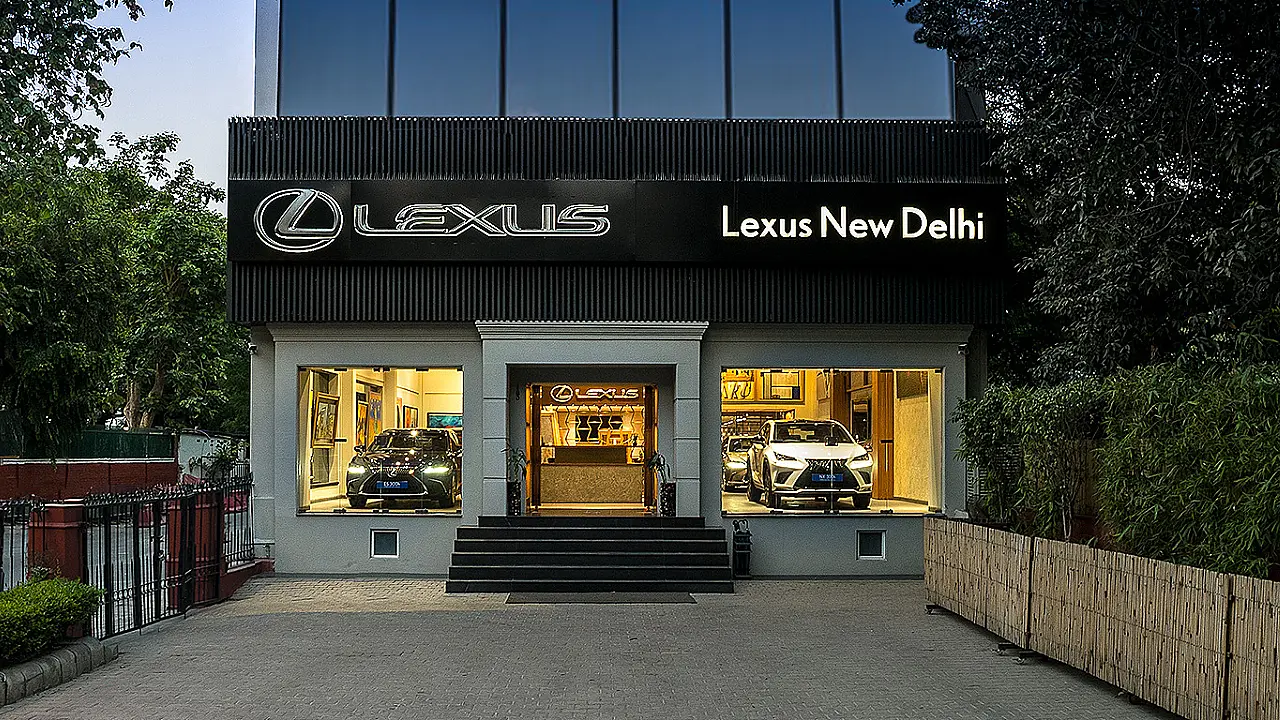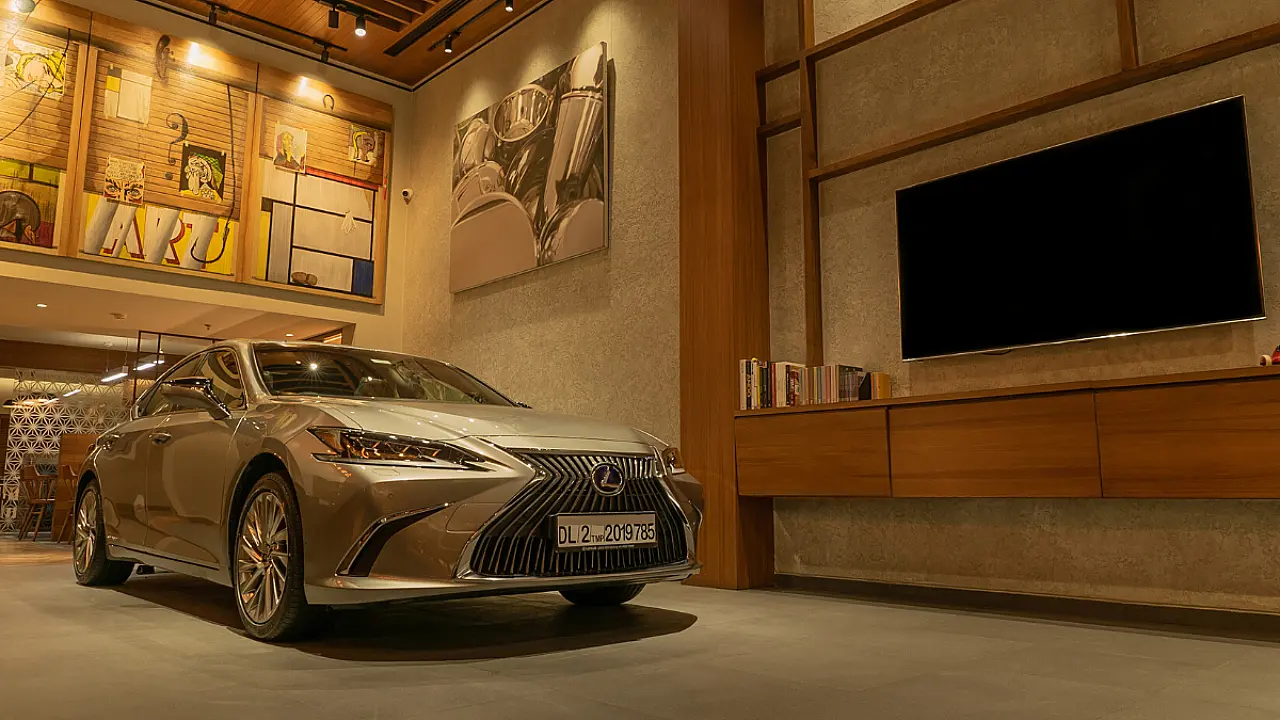
Lexus India is looking at doubling its sales volumes this calendar which will mean a three-fold rise in growth from 2022 levels, Naveen Soni, President, told Mobility Outlook.
This far, the year has been “excellent” for the company with a sizable carry forward of orders from 2022 coupled with growing demand in the luxury automobile market.
While the ES continues to be the bestseller, Soni said Lexus India has seen good traction in SUVs with the recently launched NX and RX range. In the process, the sedan, SUV sales ratio has changed from 80:20 to 70:30. By the end of the year, the company hopes to have SUVs account for 35% of sales.
While the RX 350h was launched during Auto Expo 2023, the RX500H variant will debut by Diwali. Soni said the LM series will debut by end-2023 or early next year followed by the LX range, now at the homologation stage.
Consequently, Lexus has a “well covered” spectrum of SUV offerings in India and even while the sky’s the limit for more products from its global stable, returns on investment were critical. “It is the segment size that has to be seen vis-a-vis the investments manufacturers make along with their dealer partners who stock the vehicles,” he added.
Headroom For Growth
There is doubtless huge headroom for growth of the luxury car market in India, which is expected to be 42,000-45,000 units by end-2023 but will still be just 1-1.1% of the global arena. As Soni said, this is not “truly representative” of a market which is the third largest producer of cars worldwide. “Growth can only be achieved in the luxury car market when products are carefully evaluated and brought to India,” he added.
Lexus is also upbeat about India which has seen it increase the number of units earmarked for this market. As Soni said, at the time of the NX launch, allocations were much lower than demand resulting in a long wait period but with the RX series, the parent company in Japan has allotted more.
While most models are imported, the ES is assembled at Toyota Kirloskar’s Bidadi plant near Bengaluru which makes India the third country to locally produce a Lexus. This is tribute to its competencies in being able to handle a brand that focuses on top quality.
Soni said Lexus typically looks at sales of at least 1000 units annually before contemplating local assembly and the success of the NX and RX range is, therefore, encouraging news. At the ground level, there is added focus on services and the network has grown from four cities in 2019 to 16 today along with 23 touch points including guest experience centres (GECs) and miraki (service centres).
Consequently, Lexus India has increased its presence from 56% in 2021 to 75% of the luxury car market though 35% remains untapped. “We don't want to be spreading so thin that dealer viability becomes an issue and are, therefore, treading cautiously,” said Soni. The company introduced online stores last year which now only cater to enquiries but will extend this to bookings by the end of this calendar.
Lexus Versus Rivals
From its President’s point of view, the main differentiator between Lexus and other luxury car brands lies in the fact that it sells experience rather than just the vehicles. “For us, our interest with the guests starts to go up once the vehicle is purchased,” he said.
With events like Lexus Life where GECs are transformed into various experience centres such as art studios to the Taiken Card which will allow customers to experience big ticket events like the Oscars and Wimbledon. “The idea is that a vehicle is not the only way to get connected to our guests. We feel luxury is personal and Lexus is not just a luxury mobility company but a luxury lifestyle company,” reiterated Soni.
While this curating experience has worked for the brand worldwide, the growing number of young guests in regions like India requires further enhancement of techniques. It is tying up with well known designers for Lexus Life events and taking inspiration from them to wrap specific vehicles that will be showcased at dealerships.
“The idea of Lexus Life is to engage more intensely with guests in areas that they like to be discussing. This has led to more brand affinity and helped build a precursor for future interest and reference,” explained Soni.

The company has also started riding the connected vehicle technology wave with its own ‘Lexus India’ app. Curated specifically for the RX model series, it was introduced in June with more vehicles to be added under the platform. With this app, the company aims to look beyond the vehicle and offer curated experiences for guests.
Focus On Customisation
The other top priority is to build a “solid base for GECs” through knowledge and customisation. Lexus India has asked its dealer partners to customise the GECs according to local tastes and preferences. “Indian experience centres are unique. There is no standardised template and we have asked our dealer partners to think about what is good for the market and bring a local flavour so that nobody feels as if they are in a conventional car showroom,” said Soni.
Japan is an aging society and to think young, the parent company has put in younger, multiracial designers at its design centre. Back home in India, guests relate Japanese hospitality to (Japanese) luxury which Lexus strives to showcase.
With a Lexus veteran like Koji Sato now the CEO of Toyota Motor Corporation, things could look up even more for the brand going forward. All Lexus models are due to be electrified by 2035 going by the global template.
According to Soni, the brand is already the leader in electrification vis-a-vis other luxury models in India with 99% of vehicles fitted with self charging hybrid technology. “Hybrids have given us a very good start and our guests are pleased with conserving the environment and saving on fuel costs,” he added. In his view, self charging hybrids are the best bet for India at this stage when infrastructure is yet to be developed.
Soni said the company plans to bring in a new BEV by 2025. The feedback on battery chemistry collected from the UX 300e brought into India last year has been shared with HQ in Japan which is showing “positive signs”. The idea is to provide the right chemistry for India which can assure less charging time and more range with an experience of an internal combustion engine vehicle.
Also Read